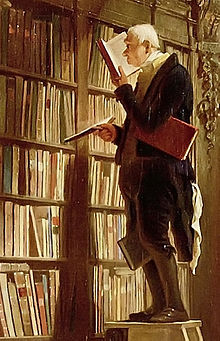User talk:Pbritti
Welcome to Wikisource
Hello, Pbritti, and welcome to Wikisource! Thank you for joining the project. I hope you like the place and decide to stay. Here are a few good links for newcomers:

- Help pages, especially for proofreading
- Help:Beginner's guide to Wikisource
- Style guide
- Inclusion policy
- Wikisource:For Wikipedians
You may be interested in participating in
Add the code {{active projects}}, {{PotM}} or {{Collaboration/MC}} to your page for current Wikisource projects.
You can put a brief description of your interests on your user page and contributions to another Wikimedia project, such as Wikipedia and Commons.
Have questions? Then please ask them at either
I hope you enjoy contributing to Wikisource, the library that is free for everyone to use! In discussions, please "sign" your comments using four tildes (~~~~); this will automatically produce your username if you're logged in (or IP address if you are not) and the date. If you need help, ask me on my talk page, or ask your question here (click edit) and place {{helpme}} before your question.
Again, welcome! — billinghurst sDrewth 04:26, 11 January 2021 (UTC)
Decree of Publication for the Personal Ordinariate of the Chair of Saint Peter (Divine Worship: Daily Office)
[edit]Source and public domain? Hi. Would you be able to provide a source for this work, and explain why you believe it is in the public domain. Modern works would need a specific release, usually Creative Commons licence, to be able to be reproduced at Wikisource. — billinghurst sDrewth 04:27, 11 January 2021 (UTC)
- Hello, my source for this item comes from the 2020 first printing of the Divine Worship: Daily Office: North American Edition. While the text of the liturgies themselves are under copyright (I believe exclusively owned by Newman House Press), episcopal decrees regarding the approval and printing of liturgical texts are usually release to the public domain to enable certification of valid liturgical texts versus unofficial devotionals. This decree’s inclusion isn’t a forward or a preface which would certainly be under copyright. Let me know if I can provide more info to help. ~ Pbritti (talk) 05:09, 11 January 2021 (UTC)
- By the way, an example of this can be found in the publication of apostolic constitutions in other liturgical books, regardless of their contractual relationship with the Holy See. It appears that official pronouncements on approving liturgies are copyright free, though I am unsure of what variety. ~ Pbritti (talk) 05:18, 11 January 2021 (UTC)
- We need more than "I think" or "I believe". In the work, if they are not explicitly stated to be licensed to the public domain, then they are under copyright and we will need to delete. — billinghurst sDrewth 13:01, 12 January 2021 (UTC)
- Hi! I’ve just emailed the relevant authorities—the bishop’s office—and will report back. Thanks for your patience. Unfortunately, this text is like many published today and its copyright status isn’t immediately visible or discernible. Thanks also for ensuring this site doesn’t get sued. ~ Pbritti (talk) 16:12, 12 January 2021 (UTC)
- @billinghurst I have received a response, but they have not answered clearly. I’ll delete the page in 24 hours if they don’t provide a clear answer. Thanks! ~ Pbritti (talk) 21:18, 13 January 2021 (UTC)